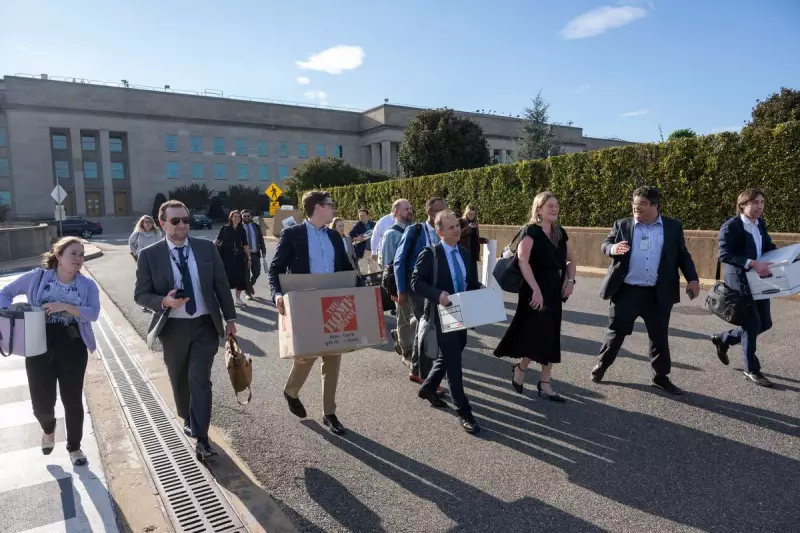
In an unprecedented display of professional solidarity, dozens of Pentagon press corps journalists staged a coordinated walkout during a routine defence briefing on Tuesday. The mass exodus occurred as Fox & Friends host Pete Hegseth, recently appointed to a Pentagon advisory board, began addressing the room.
A Silent Protest Heard Throughout the Corridors of Power
The dramatic walkout saw reporters from multiple major news organisations simultaneously rise from their seats and exit the briefing room. The protest targeted Mr Hegseth's controversial appointment to the Defence Department's Advisory Committee on Diversity and Inclusion, given his history of making inflammatory comments about Muslims and COVID-19 vaccinations.
Eyewitnesses described the scene as both powerful and surreal, with the sound of chairs scraping and footsteps echoing through the suddenly emptying room. The journalists left without uttering a word, letting their actions speak volumes about their concerns regarding the Fox News personality's new advisory role.
Background to the Protest
The protest stems from long-standing tensions between the defence press corps and what many journalists perceive as the increasing politicisation of military communications. Mr Hegseth's appointment last week sparked immediate controversy among Pentagon reporters who cover national security matters daily.
- Pete Hegseth has repeatedly made controversial statements about Muslim communities
- He has spread misinformation about COVID-19 vaccination efforts
- His appointment to a diversity committee raised eyebrows across the defence community
- Journalists felt his role compromised the integrity of military communications
Pentagon's Response and Ongoing Fallout
Defence Department officials have downplayed the incident, but sources indicate the walkout has sparked intense discussions behind closed doors. The protest represents one of the most significant displays of media dissent within the Pentagon in recent memory.
"This wasn't about silencing a voice," one participating journalist explained anonymously. "It was about maintaining the integrity of our defence reporting and objecting to the appointment of someone whose public statements contradict the values he's now meant to champion."
The incident highlights growing concerns about the relationship between media, politics, and military institutions in the United States. As the dust settles, both defence officials and journalists are assessing what this moment means for future communications and the delicate balance between press access and political appointments.





